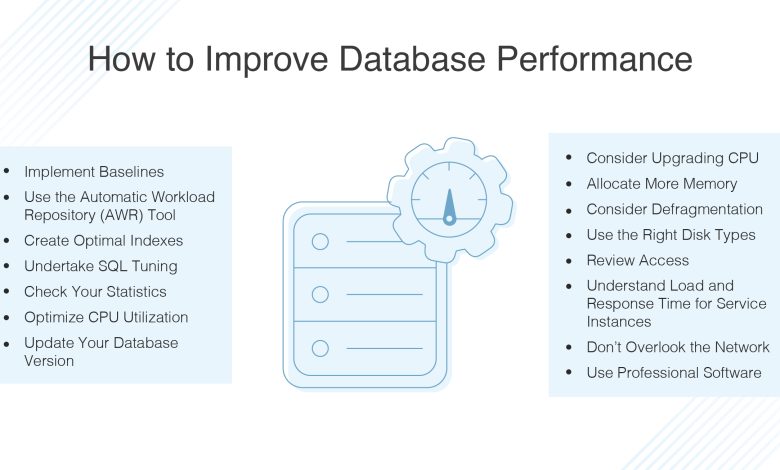Simple Tricks to Enhance MySQL Database Performance
Improve Oracle Database Performance

Before understanding how to tune SQL queries, let’s talk about SQL. SQL stands for Structured Query Language, basically a language for databases. Structured Query language (SQL) is a computer language that stores, retrieves, and manipulates data and is a programming request for data or information from a database table or combination of tables.
It generates data as pictorials, graphs, or complex results. For instance, the Oracle database uses PL/SQL or Procedural Language for its programming operations. This blog will cover some of the most convenient ways to improve MySQL database performance.
Cheatsheet for Performance Tuning in SQL MySQL
Improving database system performance requires tuning the SQL statements. The main purpose behind performance tuning in SQL MySQL is to reduce, balance, and level up the workload. Here are some great ways to improve the performance of SQL queries:
Identify high-load SQL statements
High-load SQL queries impact the performance of the Oracle database as these are poorly performing resource-intensive SQL statements. Therefore, they require SQL tuning using tools and expertise.
You can use these simple ways to identify high-load SQL statements –
- Through an overview of the working of the automatic database diagnostic monitor.
- After a proper understanding of Automatic database diagnostic monitor findings.
- Using ADDM (Automatic Database Diagnostic Monitor) findings.
- By using top SQL tuning tools. There are some useful options like Tosska out there.
- By analyzing custom workloads.
- Using SQL trace
So, you can find the high-load SQL statements using the ways mentioned above. Each of the methods mentioned above will help you enhance MySQL database performance without any issues.
Optimizing SQL query performance
Using a query language, you communicate and retrieve valuable information from your database. After identifying the ways in which you can enhance query performance, it’s time to optimize the queries. One of the easiest ways to improve SQL performance is by reducing the number of calculations your software and hardware perform during a query. The other way is to use a completely different query altogether that’s appropriate and defines your requirements.
Reducing SQL table size
To ensure you only receive the needed information, you can filter your data. You can improve SQL queries by filtering data that reduces table size and optimize SQL queries’ runtime. Use the below mentioned for query speed improvement:
- Providing a limited range of dates for time series data
- Limit the dataset in a subquery
- Avoiding duplicate data
Simplify Joins
In some cases, query joins tables drastically increase the result set’s row count. Consequently, it slows the execution time. Sometimes, changing the order during performance tuning in SQL MySQL can also join tables to optimize SQL queries.
Increase the query’s speed by choosing wisely
The right choice of query can narrow down the data fetched from the table during a query. For example, you can use SELECT fields FROM instead of SELECT * FROM. Similarly, you can use SELECT ID instead of SELECT DISTINCT. Further, you can use EXISTS () instead of COUNT () and use WHERE instead of HAVING.
To Conclude
If you want to find specific data in the database, identify the exact data you want to retrieve first. Your requirements should be clear before writing a query, enabling you to receive only the information you need.



